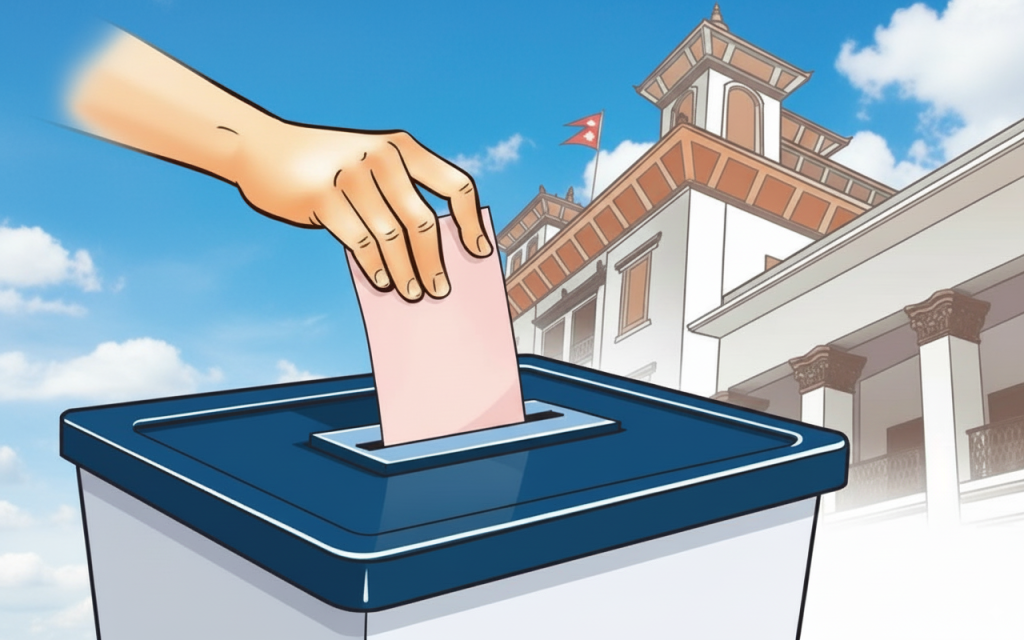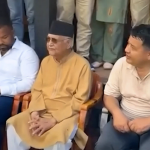
In 2018 (2075 BS), Nepal’s Supreme Court ordered the government to ensure voting rights for Nepali citizens living abroad, recognizing it as a fundamental democratic right under the 2015 Constitution. Article 25 of the International Covenant on Civil and Political Rights (ICCPR) also guarantees every citizen the right to participate in elections.
Yet, even seven years later, the government has failed to implement the order, citing legal, economic, technical, and administrative hurdles. The Court once again reminded the government in July 2025 (Shrawan 2082) to take immediate steps to enforce this right.
Millions of Nepalis Disenfranchised
According to Nepal’s 2021 census, at least two million Nepalis live abroad, though some estimates put the number as high as six to eight million. Most left for work and education, yet none of them are allowed to cast votes in Nepal’s democratic process. Even internal migrants within Nepal are barred from voting outside their home constituencies.
By contrast, other countries ensure voting rights for their diaspora. For example:
- Algeria reserves eight seats in parliament for citizens abroad.
- Ecuador elects six parliamentary representatives directly from its diaspora.
In Nepal, however, despite remittances accounting for nearly one-fourth of GDP, migrant workers remain excluded from voting. Critics argue that denying voting rights to those sustaining the economy is both unjust and unethical.
Existing Voting Options
Globally, four main approaches exist for diaspora voting:
- Embassy Voting – Citizens cast votes at embassies or designated locations abroad.
- Postal Voting – Votes are mailed to Nepal, though delays and tampering risks exist.
- Proxy Voting – A trusted representative casts the migrant’s vote in Nepal, though verification is nearly impossible.
- Online / Electronic Voting – Increasingly common, allowing secure remote voting through digital systems.
Of these, online and blockchain-based voting is emerging as the most viable and secure.
Political, Legal, and Administrative Hurdles
The primary obstacle has been political will. Major political parties have expressed verbal support but rarely prioritized implementation. Leaders fear that migrants, frustrated with the system, may vote for new political forces rather than traditional parties.
Other challenges include:
- High logistical costs of conducting overseas elections.
- Diplomatic negotiations with host countries (especially in the Gulf).
- Administrative complexity of handling millions of votes from abroad.
- Weak voter registration systems, with many migrants still missing from official rolls.
Internationally, overseas voting costs can be 5–10 times higher than domestic voting. For instance, Mexico reportedly spent over NPR 13,000 per vote when implementing diaspora elections.
Why Blockchain Could Be the Answer
Blockchain technology offers a secure, transparent, and affordable solution. Each vote is recorded as an unalterable block in a decentralized ledger, preventing fraud or tampering.
Key benefits include:
- Security: Once recorded, votes cannot be changed or duplicated.
- Transparency: Political parties and observers can verify results without compromising voter anonymity.
- Cost Efficiency: A blockchain provider estimates service costs at USD 1 (NPR 140) per voter, far cheaper than traditional methods.
- Scalability: Can be expanded from migrants to internal displaced voters within Nepal.
Voters could register using digital IDs (citizenship, passport, or national ID), log into a secure app, and cast their vote from anywhere in the world. The system would permanently store their vote in the blockchain, accessible only for verification—not manipulation.
Countries like Mexico have already piloted blockchain voting in their presidential elections. Nepal could adapt the same model, using local IT talent to build a secure, homegrown voting application.
Challenges Ahead
Of course, blockchain voting is not without risks:
- Cybersecurity threats remain a concern, though blockchain is more secure than centralized systems.
- Digital literacy varies widely among Nepalis, meaning extensive voter education campaigns would be essential.
- Infrastructure like embassy help desks or local digital support centers would be necessary.
The Way Forward
With growing pressure from the judiciary and diaspora communities, Nepal has a unique opportunity to modernize its democracy. By piloting blockchain voting in upcoming elections for migrant workers and internal migrants, the country can test its effectiveness before scaling nationwide.
Democracy belongs to every citizen—including those abroad. Blockchain voting could finally bridge the gap, empowering millions of Nepalis to take part in shaping the nation’s future.











